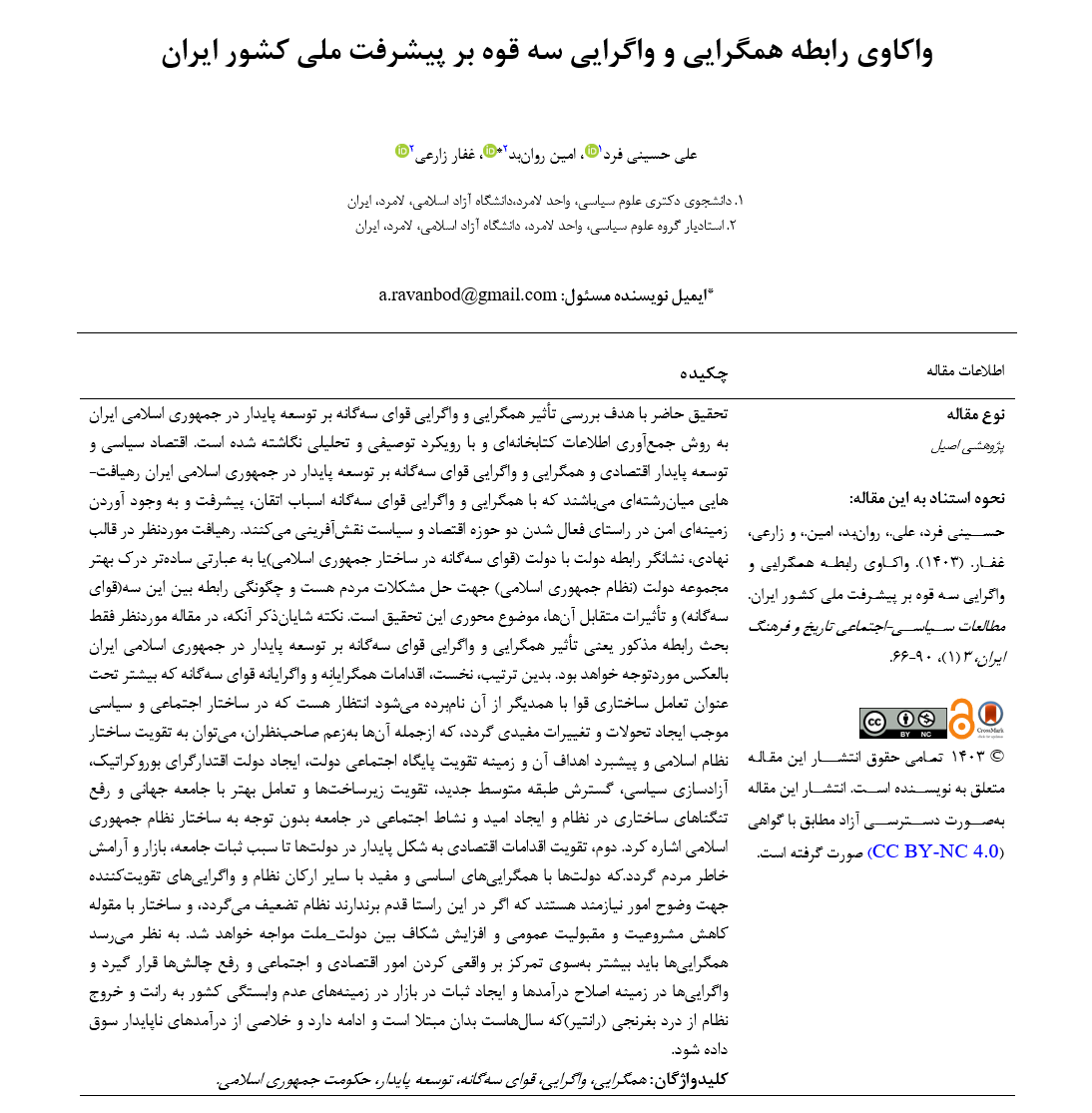Analysis of the Relationship between Convergence and Divergence of the Three Branches of Power and National Progress in Iran
Keywords:
Convergence, Divergence, Three Branches of Power, Sustainable Development, Islamic Republic GovernmentAbstract
The present study aums to examine the impact of convergence and divergence of the three branches of power on sustainable development in the Islamic Republic of Iran and has been conducted using a library research method and a descriptive-analytical approach. Political economy, sustainable economic development, and the convergence and divergence of the three branches of power in the Islamic Republic of Iran are interdisciplinary approaches that play a role in ensuring the stability, progress, and creation of a secure environment necessary for activating both economic and political spheres through the interaction of these branches. The institutional approach taken in this research illustrates the relationship between different branches of government (i.e., the three branches in the structure of the Islamic Republic) or, in simpler terms, aims to better understand the collective state (Islamic Republic system) for solving public issues. The main focus of this study is the nature of the relationships among these three branches and their reciprocal effects. It is noteworthy that the primary concern of this article is only the examination of the aforementioned relationship, specifically the impact of the convergence and divergence of the three branches on sustainable development in the Islamic Republic of Iran. Thus, first, the convergent and divergent actions of the three branches, often referred to as structural interactions, are expected to lead to beneficial transformations and changes in the social and political structure. According to experts, these include strengthening the Islamic system's structure, advancing its goals, reinforcing the government's social base, establishing an authoritative bureaucratic state, fostering political liberalization, expanding the new middle class, improving infrastructure, enhancing interaction with the global community, and addressing structural constraints in the system while promoting hope and social vitality, irrespective of the Islamic Republic's framework. Second, there is a need to strengthen sustainable economic measures by governments to ensure societal stability, market balance, and public confidence. Governments must engage in fundamental and beneficial convergences with other components of the system and adopt reinforcing divergences to bring clarity to governance. Failure to do so may weaken the system and lead to a crisis of legitimacy and acceptability, as well as a widening gap between the state and society. It appears that convergence efforts should increasingly focus on addressing real economic and social challenges, while divergences should aim at reforming revenue streams, stabilizing markets, reducing dependency on rent, and freeing the system from the prolonged economic issues associated with rentierism and reliance on unstable income sources.
Downloads







